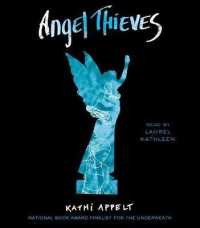Full Description
In nature, heterotrophs compete for food, forming ecological food chains. Herbivores rely on plants and live symbiotically, while carnivores and ectoparasites like ticks depend on other animals, leading parasitic lives. Ticks are ectoparasites that need blood meals to fulfill their nutritional requirements and attach to hosts using suctorial mouthparts. This book offers a detailed overview of tick feeding, salivary secretions, and the immune responses in hosts. It explores how ticks transmit pathogens through saliva, causing diseases in humans, wild animals, and livestock. The book also examines the physiological effects of tick saliva toxins and their role in pathogenesis and allergy. It includes chapters on isolating tick saliva toxins, producing polyclonal antibodies, and control methods for ticks. With recent scientific discoveries, it serves as a valuable resource for scientists, doctors, veterinarians, and tick biology experts, addressing tickborne infections and their economic impact.







